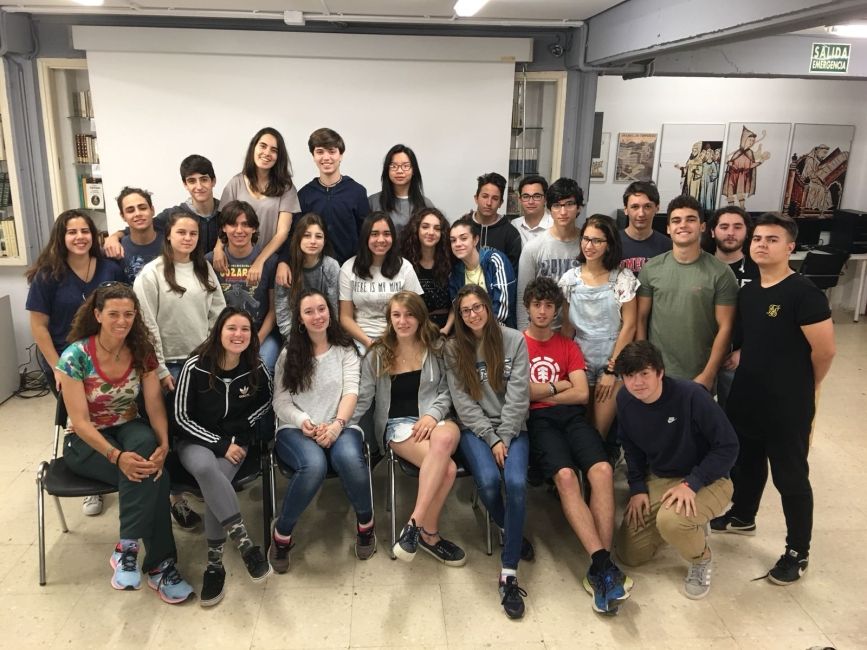Learning a Second Language, Being Deaf!
When I first got to Spain in 2017, I was really scared and intimidated by the fact no one knew I was profoundly deaf and has cochlear implants. Growing up, my school system, local community, family, friends, peers, and more were familiar with my hearing problems. Throughout middle school, practically everyone knew I was hard of hearing, and my town was a supportive outlet when I was receiving my cochlear implant. I was so grateful and thankful, but I think that security and comfort led me to want to push outside my boundaries a bit.
In my junior year of high school, I decided to study abroad in Seville, Spain for the year. Going to Spain I did not have my teachers who knew of my implant, I had no special hearing device, and no one questioned the magnetic device on my head. Entering Colegio Aljarafe in Mairena del Aljarafe for the first time, I had the normal first-day jitters, but also the immense fear of explaining in SPANISH that I was deaf. Little did I know at the time, but the community of Mairena would become parallel to my hometown in their supportive nature and love for me regardless of my hearing impairment. My friends were curious what a cochlear implant was, and my teachers pushed me to explain my deafness to the class, and not only that, but not speaking fluent Spanish at the time, everyone ensured that they spoke slowly to me. Fast-forward to my junior year of college, I found myself in Seville again, this time fluent in Spanish and with great confidence. My junior year of high school made me who I am today. Because of my experiences of being pushed outside my comfort zone, I became more confident in myself and my own advocate. I learned so much that year culturally, linguistically, and personally. That experience was a catalyst for self-growth. I made my best friends with whom I still to this day speak on a weekly basis, and I found my second home, Sevilla. I loved it so much that I wanted to return on a CIEE program. CIEE was so supportive in advocating for me as well! Raquel, my program director, was in contact with my school and my host mom made sure to speak with my teachers. I felt so secure in such a new place.
Learning Spanish while not being able to hear was really hard, not to mention the Sevillian accent. I mixed up the S and TH sounds, I would not hear words properly, and I would say incorrect vocabulary, literally making up my own words. But, I preserved. I studied, I spoke, I participated in class, and I had no English. I learned Spanish very quickly and was so proud I did it with the pre-determined "barrier" of deafness.
Related Posts
Adjusting to a New Routine: What a Typical Week Looks Like for Students Studying Abroad in Palma
Studying abroad in Palma de Mallorca offers students an exhilarating mix of cultural immersion, intellectual growth, and personal discovery. While the idea of residing in a foreign country may be... keep reading
How to Make Friends and Build Community While Studying Abroad in Palma
Starting a study abroad program in Palma de Mallorca is an exciting adventure—but can also be a little daunting, especially if you're going it alone or haven't yet met anyone... keep reading
What First-Time Study Abroad Students Should Know About Daily Life in Palma
If you’re preparing for your first study abroad experience in Palma de Mallorca, Spain, you’re in for an unforgettable adventure. From the historic streets of the Old Town to the... keep reading
